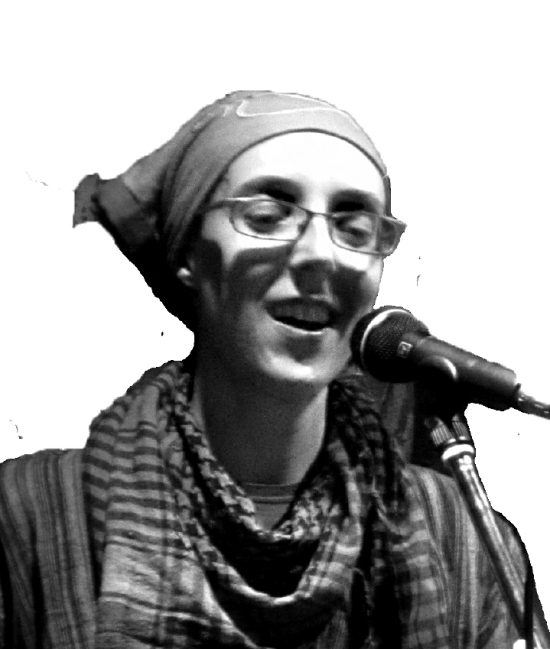There are songs that beat the drums of war and songs that wave the flag of peace, and in different ways these are all love songs, songs of grief and songs of hope. It’s all a propaganda of sorts, even songs written from the deepest place in our hearts.
Yemeni singer Bilal al-Aghbari became well-known in his home country in 2007 when he came third in Sharjah Star, an international talent competition hosted in the UAE. When the Arab Spring reached Yemen, he says: ‘I participated in the revolution of 2011, and now I am participating in the cultural war by producing inspiring songs for the fighters. Artistic resistance is half of the fight, and each person has to make the most of their strengths to resist invaders.… In war, everyone has to serve the country in the best way possible. The best way for a singer to serve his or her country is through revolutionary songs.’
But not all singers have chosen a side. Emmad Ahmed, a Yemeni writer, said that although many singers had lost their sources of income during the war, they declined to participate in the cultural war, and that ‘this was better’. He said: ‘The warring sides will reach an agreement, but the songs will remain a witness that singers participated in supporting one side to kill another.’
For civilians navigating life in a conflict zone, these songs can become signals that help them navigate military checkpoints. Ridhwan Sultan is a bus driver who passes through dozens of checkpoints operated by both the Houthis and the Popular Resistance. He says: ‘when I reach a Houthi checkpoint, I play their songs. I also do the same thing with the resistance, so I can pass easily from their checkpoints.’
An Israeli pro-war, revenge hip-hop song reached number one in the Israeli charts last November, with thousands of young Israelis filming themselves dancing along to the song.
Somewhat ironically, the Hebrew title is derived from a Levantine Arabic slang term, meaning ‘raining hell on your opponent’. It has controversial lyrics, such as describing people as rats or dogs, and has been criticised for being genocidal because of the reference to ‘Amalek’, which is a biblical reference also recently used by Netanyahu. [God ordered Saul to destroy the Amalekites: ‘put to death men and women, children and infants, cattle and sheep, camels and donkeys’ – ed]
The song keeps reiterating that they will never forgive, says: ‘Who do you think you are? Coming and shouting “Free Palestine”?’ Following a ‘whoop – destruction’ lead-in, the chorus lists Israeli military units followed by ‘one-two-shoot’.
For decades, the peace anthem of the left in Israel was ‘Shir LaShalom’ (‘A Song for Peace’), which takes time to acknowledge the pain and loss of war, but reminds us that ‘the bitter cries will not wake them, they will not return… Here neither the victory cheer, or songs of praise will help, so just sing a song of peace, don’t whisper a prayer, it’s better if you sing a song of peace.’
It feels reminiscent of gun control activists in America so often having to say ‘don’t give us thoughts and prayers, give us action.’
Somewhat unexpectedly for a song that became a peace anthem, it was first performed by members of an Israeli infantry ensemble during the 1967 war, and was later famously sung by the crowd at a peace rally in 1995 led in part by Yitzhak Rabin just before he was assassinated by a right-wing Israeli extremist. The blood-stained lyric sheet was still in his pocket.
15-year-old rapper MC Abdul grew up in Gaza and came to prominence at the age of 12 rapping his self-penned ‘Shouting at the Wall’, written during Israeli bombing of Gaza in 2021.
The song begins: ‘I’m exhausted, last night I couldn’t sleep, and when I did I could hear bombs in my dreams….’ He says: ‘the fourth war in my twelfth year…. As the building shakes like it’s possessed, But nothing’s stronger than the will of the oppressed – I bomb back with my lyrics and rhymes....’
Now living in the US, MC Abdul is using his platform to ‘remind everyone that we are humans too, and we should have the right to live in peace,’ performing songs that continue the long-embedded Palestinian philosophy of ‘the pen is mightier than the sword.’
The pen and the sword are undoubtedly entwined for some, just as the pen and the tools of peace are entwined for others, and for so many more, it’s just a case of navigating a war zone that nobody chose to live in.
And if a song can help you pass smoothly through a checkpoint, or remind you that other possibilities exist outside of this reality, then the musicians have done something to help, and sometimes that’s all we can do.


